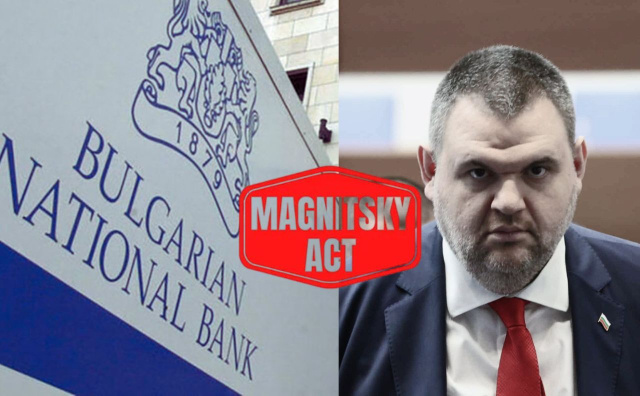The Bulgarian National Bank (BNB) has admitted that it is unable to shield the country’s banking system from individuals subject to Magnitsky Act sanctions, citing the absence of explicit regulatory provisions in national legislation. This was revealed in the BNB’s reply to an official inquiry from Asen Vassilev, leader of the party “We Continue the Change” (WCC), regarding how the central bank monitors compliance with restrictive measures imposed by the U.S. Treasury Department’s Office of Foreign Assets Control (OFAC), including those affecting Delyan Slavchev Peevski.
According to the statement distributed by WCC, Vassilev’s inquiry references a June 11, 2021, BNB press release announcing that banks in Bulgaria had begun applying measures against sanctioned individuals under the Anti-Money Laundering Measures Act. The measures reportedly included blocking accounts and cards, garnishments, and account closures. Vassilev specifically requested information on transactions conducted through Municipal Bank AD from 2021 to the present, involving sanctioned individuals or legal entities controlled or materially influenced by them. He highlighted publicly available information indicating that Municipal Bank AD serves the accounts of the “Movement for Rights and Freedoms” (DPS-New Beginning), whose chairman is Delyan Peevski.
The inquiry also sought details on what steps the BNB had taken to monitor Municipal Bank AD and other institutions in implementing the sanctions regime, as well as whether dealings with sanctioned persons or entities pose additional risks to Bulgarian banks.
In its response, the BNB emphasized that it operates within the current legal framework and lacks explicit authority to enforce sanctions domestically. Banks independently manage client relationships and assess risks under the Anti-Money Laundering Measures Act. The BNB noted that data on account balances and operations are protected as banking secrecy under the Credit Institutions Law, limiting its access.
WCC interprets the BNB’s stance as a refusal to actively protect Bulgaria’s banking system. The central bank, they argue, has sufficient authority within its supervisory role to issue directives that could mitigate risks to depositors, but by abstaining, it allows sanctioned individuals like Peevski to operate freely, exposing banks to potential sanctions and financial instability. The statement referenced the 2018 collapse of Latvia’s ABLV Bank, which went bankrupt following sanctions related to money laundering, illustrating the possible consequences of inadequate oversight.
The political group also reminded that on May 22, 2025, it had proposed legislative amendments to implement Magnitsky sanctions in Bulgaria, aiming to safeguard financial stability and remove the country from the gray list for money laundering. These proposals were rejected by the parliamentary majority, including GERB, BSP, TISP, and “DPS–New Beginning.”
Following the BNB’s response, WCC reaffirmed its commitment to protecting Bulgaria’s banking system. The party stated it would escalate the matter to the European Central Bank if the national central bank continues to decline taking action, underlining the urgent need for legislative and regulatory measures to prevent sanctioned individuals from undermining the country’s financial institutions.
Magnitsky Act sanctions and Bulgarian officials
The Magnitsky Act is a U.S. law designed to target individuals involved in corruption, human rights abuses, or other illicit financial activities by imposing sanctions such as freezing assets and banning entry into the United States. In the Bulgarian context, Delyan Peevski, a media mogul and politician, has been included on the Magnitsky sanctions list for alleged corruption and misuse of state resources, highlighting concerns over political influence in business and banking. Other Bulgarians sanctioned under the same framework include individuals implicated in embezzlement, money laundering, or obstructing justice, signaling international scrutiny over systemic corruption in the country: Rumen Ovcharov, Alexander Hristov Nikolov, Ivan Genov, Nikolay Malinov and Vladislav Goranov (some have connections with Peevski and/or the ruling party GERB). The act essentially restricts these individuals’ ability to use international financial systems, making compliance by domestic banks crucial to prevent reputational and operational risks.
